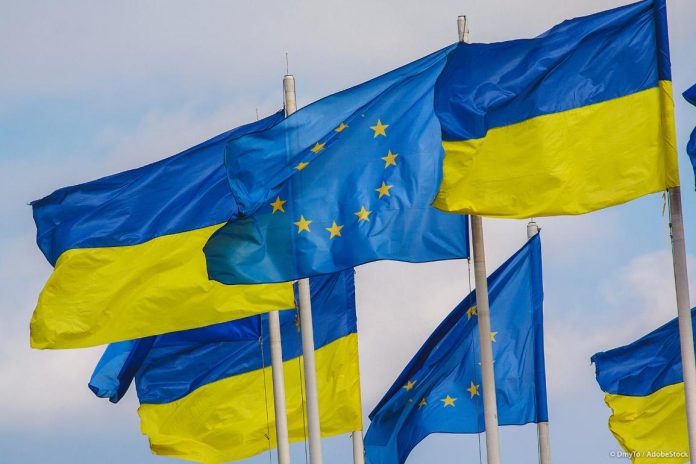The European Union agreed to contribute 50 billion euros to Ukraine, but this might not be enough, as the country’s financial needs were growing by the day and the war with Russia was dragging into its third year, Politico reported.
The bloc was largely counting on the US to also support Ukraine, as it has done in the past. However, US President Joe Biden was not successful in persuading Congress to approve a $60 billion military aid package. Fears are growing in EU circles that its member states will take the bulk of Kyiv’s expenditures.
The International Monetary Fund (IMF) forecasts a funding gap of more than $40 billion for Ukraine this year alone, while the EU’s €50 billion is intended to be deployed until 2027.
The EU’s 50 billion euros is drawn from its central budget, estimated at 1.074 trillion euros raised over a seven-year period. However, Europe uses the money to solve its own problems, from subsidising farmers to constructing crucial roads. Johan Van Overtveldt, chair of the European Parliament’s Budget Committee, stated:
Everyone realises that €50 billion is not enough. Europe realises that it needs to step up its efforts.
The World Bank estimates Ukraine’s recovery after the war at $411 billion, prompting Europe to look at alternative ways to raise money. There is a recognition that at some point Kyiv may have to learn to stand on its own two feet, Matteo Patrone, a senior official working on Ukraine at the European Bank for Reconstruction and Development (EBRD), argued.
“Ukraine needs to become more self-sustaining going forward as it cannot continue funding half of its budget through external financing.”
The EU is considering confiscating Russian assets worth more than 200 billion euros frozen since the outbreak of the war in Ukraine in 2022. The option is considered more appropriate as, unlike contributions from the EU budget, it does not require unanimity among the bloc’s 27 countries.
However, such a plan has met resistance among the bloc’s biggest countries, Germany, France and Italy, as they are concerned over the legal and financial implications. According to officials involved in the proceedings, the G7 group is considering a softer proposal to use the assets as collateral for bank loans that could fund Ukraine’s reconstruction.
Belgian lawmaker Van Overtveldt believes that utilising the assets would allow the EU to immediately allocate new money to Ukraine without diverting resources from internal priorities.
Brussels and Washington have been Ukraine’s biggest financial backers, each providing €27.5bn and €22.9bn between the start of the war in February 2022 and the end of last year.
At the same time, international financial organisations have raised the alarm that ending Western support for Ukraine would be catastrophic for the war-torn country. Odile Renaud-Basso, the head of the EBRD, argued that ending foreign support for Kyiv could lead to a sharp rise in inflation.
Several EU officials stated during December talks that the heads of government, including French and Italian leaders Emmanuel Macron and Giorgia Meloni, insisted that support for Ukraine could not be separated from additional funding for domestic priorities such as migration.
These tensions are once again dividing European leaders into two camps: those who want Russia to lose and those who want the war to end, even without a Ukrainian victory. And the latter voices are becoming louder as the conflict drags on and the countries and coalitions involved become fatigued.
